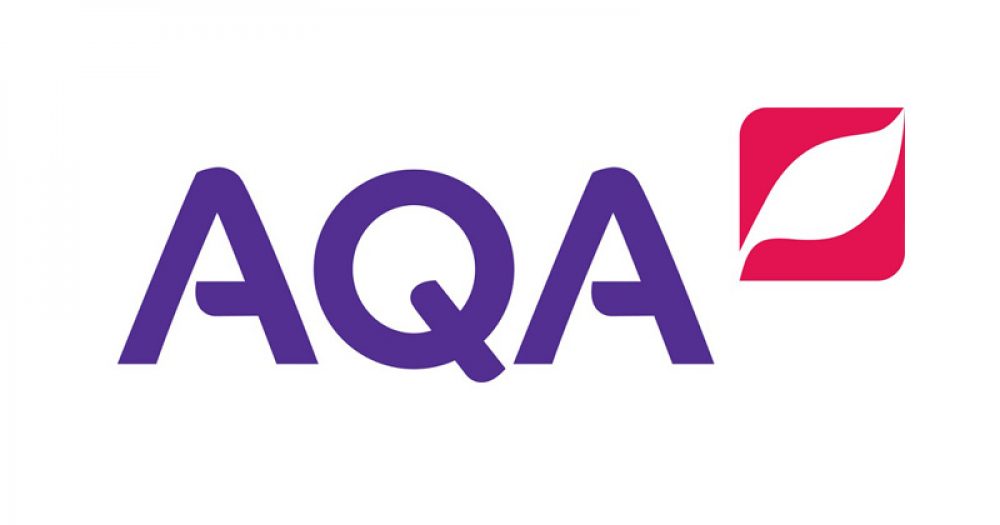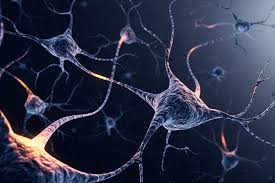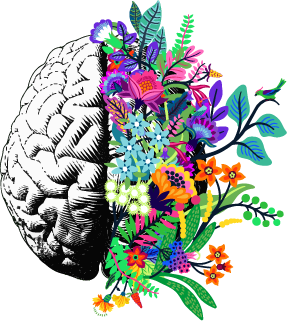Site home
Skip carousel Show all carousel content📣 Announcements!
This is a space for links to courses etc
Available courses
Number of topics: 25
Course Aims
The aims of the A Level law course are to help you to:-
The WJEC Eduqas A level in law enables learners to develop an understanding of both public and private law within the law of England and Wales, and develop skills which will prepare them for further undergraduate study and future careers. This specification enables learners to develop their ability to analyse both legal rules and principles and factual issues. It enables learners to construct persuasive legal arguments and to evaluate the strength of such arguments. It also enables learners to develop the ability to think critically about the role of law in society.
This A level specification in law encourages learners to:
- develop their knowledge and understanding of the English legal system and areas of both private and public law within the law of England and Wales
- develop an understanding of legal method and reasoning as used by lawyers and the judiciary
- develop and apply the techniques of legal method and reasoning to analyse and offer answers to problems, based on legal principles, legislation and case law
- develop the ability to construct conclusions and communicate legal arguments by reference to appropriate legal authorities
- develop the ability to communicate persuasive legal arguments by reference to appropriate legal authorities
- demonstrate critical awareness of the influence and operation of the law in society.
So: This A level specification requires you to study the dynamics of legal decision making that will equip you with the skills necessary to study law at higher education. It has a broad focus so that you will experience a range of legal disciplines. This specification also provides you with the opportunity to demonstrate your ability to construct and develop a sustained line of reasoning which is coherent, relevant, substantiated and logically structured.
Number of topics: 25
What is law?
Law is the study of the English legal system and how English law is implemented and understood across various legal institutions.
A robust legal system is the foundation of a fair society, thus, essential for society to function in a just and fair way.
What will I study at AS Level?
Unit 1: is ‘law making and the Legal System’ and you will cover domestic legislation, forms of primary and secondary legislation, the roles of Parliament and the Judiciary in the operation of law making. You will also study forms of dispute solving which looks at the court structure, the legal profession and Jury selection.
Unit 2: concerns ‘The concept of liability’, which covers an introduction to civil and criminal offences and the sanctions and remedies involved. During term time visits to courts will be arranged and time permitting, visits to legal chambers and Parliament.
Assessment will take place in January and May/June. The first unit, namely ‘law making’ and ‘dispute solving’ cover 50% of the total of AS level marks. The second unit – Criminal law and tort law covers 50% of the total AS level marks.
A2 Law:
Students will study two units – LAW 03 – Criminal law, focusing on offences against the person, which includes homicide, non-fatal offences and a number of defences. LAW 04 Tort law Students will also have to learn concepts of law.
Number of topics: 5
This qualification will prepare you for junior and entry level accounting roles. It delivers a solid foundation in finance administration - covering areas such as double entry bookkeeping to basic costing principles and using accounting software.
Number of topics: 6
The purpose of this qualification is to ensure that students are well prepared to progress into a career in business, finance or professional accountancy, or into further education.
Students will learn and master financial processes including accounting principles and concepts, advanced bookkeeping and final accounts. They will also understand business issues regarding value added tax (VAT), issues in business, management accounting costing techniques and ethical practices for accountants.
This qualification
further delivers software skills through spreadsheet training for accounting.
All of the units within this qualification are mandatory. Four units are assessed individually in end of-unit assessments. This qualification also includes a synoptic assessment that students sit towards
the end of the qualification, which draws on and assesses knowledge and understanding from
across the qualification.
Number of topics: 10
View courseNumber of topics: 0
In A2 we will study 2 units
SCLY3 Beliefs in Society
SCly4 Crime and Deviance with Research Methods
Number of topics: 7
This unit covers the following topics
What is a family and what is its role in society?
Diversity in the family
Demographic changes
Social policy
Childhood
Conjugal roles
Number of topics: 9
View courseNumber of topics: 110
AS and A2 Government and Politics (Edexcel)
Politics is the study of conflict and power. From the debates between the Conservative Party and the Labour Party about education, health and the economy to the ‘Occupy’ movement in New York and London and the Arab spring in Libya, Egypt and Syria, politics is all around us.
In any society there are arguments about how we should run our lives and allocate scarce resources. Politics is the study of these disagreements and how they are resolved. In a democracy such as the UK, these conflicts are resolved peacefully through voting or pressure groups. However, in other countries, or on the world stage, violence, terrorism and war are used to resolve differences. Politics is an exciting and dynamic subject which draws on real examples from the world around us to answer the question of ‘how we should live our lives and organise our affairs?’
Number of topics: 52
This is a new course, which started in September 2015.
There are two units and in each unit there are two topic areas. You will start off with Unit One (Social Psychology) and then finish this unit with Cognitive Psychology. For the remainder of the year, you will learn unit two (Biological and Learning Approaches to Psychology).
Make no mistakes, this is a very demanding course. It is NOT a soft option.
Be prepared to apply GCSE level mathematics (statistics, averages, probability, percentages etc) and science based links (brain parts, hormones, chemicals etc).
It is a theory based subject covering many popular theories on topics like obedience, prejudice, memory, dyslexia etc. You should be prepared to read (a lot!) and write extensively (12 - 18 mark essays).
Number of topics: 20
View courseNumber of topics: 47
Please ensure that you are enrolled on this page if you are in group 2 and 6 - your teacher is Amy Chambers.
This is where your teacher will upload support materials and make content available to you as you progress through the course.
Number of topics: 15
View courseNumber of topics: 139
AS Maths consisting of the following modules:
- Core 1
- Core 2
- Mechanics 1
Number of topics: 135
This course takes you on from AS Mathematics through to a full Mathematics A-level.
There are three modules: Core 3, Core 4 and Decision 1.
Number of topics: 8
Module 3 covers the concepts of periodicity and the periodic law then studies the properties and reactions of the elements of group 2 and group 7 in more detail. New concepts include 1st and successive ionisation energies. giant structures and disproportionation reactions,
The module then moves into the area of heat energy change and enthalpy change for a variety of reactions including a fair amount of calculation work.
New concepts include standard enthalpy change, Hess's law and average bond enthalpy.
Next is rates of reaction and equilibrium where the factors affecting both reaction rates and reversible reactions and equilibrium are explored.
New concepts include Maxwell-Boltzmann distribution of molecular energies, activation energy, catalysis and Le Chatelier's principle for predicting the effect of changing conditions in systems at equilibrium, and the equilibrium constant Kc.
Module 4 covers all of the organic chemistry starting with the basics such as types of formulae, naming and isomerism.
The module moves to the properties and uses of alkanes and alkenes including the use of fuels, and the use of polymers and the problems of disposal.
The module then continues with alcohols and haloalkanes which are new content for Chemistry students before completing the AS work with analytical techniques, bringing in the new concepts of mass spectrometry and infrared spectroscopy.
Number of topics: 8
Module 1 covers all aspects of practical skills in preparation for the written examination and for the practical activity group tasks towards the practical endorsement
Module 2 covers the fundamental concepts in Chemistry.
Atomic structure and bonding are traditional topics but new ideas encountered include shapes of molecules, intermolecular forces and a new way of dealing with electronic structure of atoms.
Moles and chemical quantities requires you to get your numeracy skills up to scratch as there are a variety of problem solving tasks to do including titrations and the formulas for hydrated salts.
Acids and bases and their reactions include new ideas such as strong and weak acids and bases, and titration.
Oxidation and reduction are old ideas but the new analysis involved needs use of oxidation number to solve problems.
Number of topics: 20
View courseNumber of topics: 5
View courseNumber of topics: 5
This is the separate moodle page for the BTEC Applied Science Foundation diploma modules taken in the first year which allows students 90 credits per year or 3 A-level equivalent over the duration of the course.
The units are as follows
Unit 4 - Laboratory Techniques
Unit 9 - Human Physiology of Reproduction and Regulation
Unit 11 - Genes and Genetic Engineering
Number of topics: 4
View courseNumber of topics: 5
View courseNumber of topics: 4
The AAQ in Human Biology is a one A-level equivalent course from OCR which is designed to provide learners with Biology knowledge that will help them to progress on to science specialisms at university and apprenticeships in Healthcare/science related pathways. Many learners will benefit from the hybrid exam and coursework style assessments.
Number of topics: 98
AS Physics consisting of the following modules:
- Unit 1 (Particles, quantum phenomena and electricity - 40% of UMS)
- Unit 2 (Mechanics, materials and waves - 40% of UMS)
- Unit 3 (Investigative and practical skill in AS physics - 20% of UMS)
Number of topics: 30
The second year of the A level Physics course.
Unit 4: Fields and Further Mechanics
Unit 5: Nuclear, Thermal and Applied Physics
Unit 6: Investigative and practical skills in A2 Physics
Number of topics: 12
Chosen by over 1 million students every year, BTEC offers a range of work-related qualifications for learners taking their first steps into employment, planning to enter university or progressing through their careers. After 30 years of proven success, more employers and Higher Education institutions across the globe are choosing BTEC-qualified candidates for their academic knowledge and practical skills.
BTEC offers the ability to develop work related skills as well as knowledge……….. It can be a fast track to employment
Students completing their BTEC Nationals in Health and Social Care or BTEC Nationals in Applied Psychology will be aiming to go on to employment, often via the stepping stone of higher education.
Students interested in developing their practical and technical skills in a hands-on way.
Able to do exams, but like being able to back this up with coursework.
Willing to work hard in and out of lessons to develop skills compatible with the course.
Enjoys Science, English and basic Maths (Grades 4,5 & 5)
click here to check out possible careers
Number of topics: 10
View courseNumber of topics: 13
BTEC Courses: Chosen by over 1 million students every year, BTEC offers a range of work-related qualifications for learners taking their first steps into employment, planning to enter university or progressing through their careers. After 30 years of proven success, more employers and Higher Education institutions across the globe are choosing BTEC-qualified candidates for their academic knowledge and practical skills. BTEC level 3 qualifications are equivalent to ‘A’ level qualifications.
BTEC offers the ability to develop work related skills as well as knowledge……….. It can be a fast track to employment
Students
completing programs of learning that include BTEC
Nationals in Health and Social Care or BTEC Nationals in Applied Psychology will
be aiming to go on to employment, often via the stepping stone of higher
education and will be students who: -
Are interested in developing their practical and technical skills in a hands-on way.
Are able to do exams, but like being able to back this up with coursework.
Are willing to work hard in and out of lessons to develop skills compatible with the course.
Enjoy science, English and basic maths (Grades 4, 5 & 4 minimum entry requirements)
click the image to check out possible career choices
Number of topics: 10
The Duke of Edinburgh's Award available in College to run alongside your Formal qualifications.
Sometimes referred to as D of E by those involved.
Something a bit different to add to your skill and knowledge base to support your personal development
Number of topics: 12
This area is for guidance on how to use some of the most popular features in Moodle - also links to you tube guides
Number of topics: 9
View courseNumber of topics: 17
View courseNumber of topics: 10
View courseNumber of topics: 4
This course consists of the readymade Blended Learning Consortium (BLC) modules for Engineering Level 3
Number of topics: 7
This course consists of the readymade Blended Learning Consortium (BLC) modules for Computing Level 3.
Number of topics: 13
This course consists of the readymade Blended Learning Consortium (BLC) modules for Business Level 3.
Number of topics: 25
This course consists of the readymade Blended Learning Consortium (BLC) modules for Sociology A level.
Number of topics: 13
This course consists of the readymade Blended Learning Consortium (BLC) modules for Geography A level.
Number of topics: 4
This course consists of the readymade Blended Learning Consortium (BLC) modules for Psychology A level.
Skip course categories














































